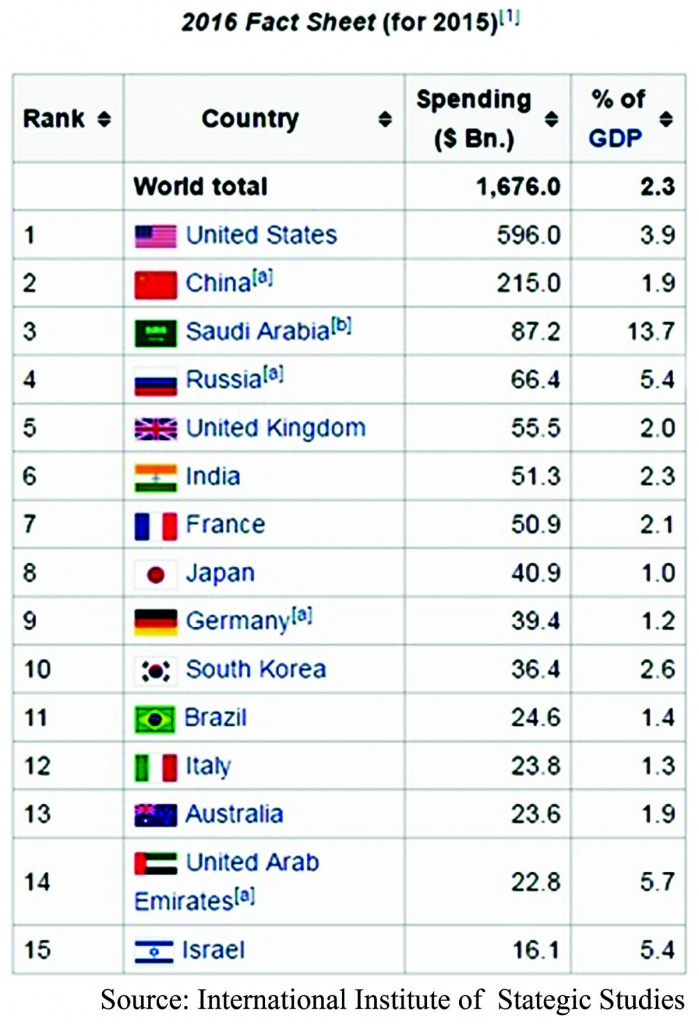 India has opened its defence sector to 100% foreign investment. The Modi government, which came to power in 2014, aimed to bring more foreign direct investment (FDI) in different sectors. This process gave way to foreign investment up to 49% in the defence sector. This has now increased to 100% this year.
India has opened its defence sector to 100% foreign investment. The Modi government, which came to power in 2014, aimed to bring more foreign direct investment (FDI) in different sectors. This process gave way to foreign investment up to 49% in the defence sector. This has now increased to 100% this year.
The government’s decision to liberalize FDI rules for the defence sector could force Indian companies to relook at their plans as it will reduce dependence on the domestic original equipment manufacturers (OEMs). India’s decision to open its defence sector for 100% FDI is likely to result in more access to modern technology.
FDI in defence has its pros and cons. The decision can be comprehensively judged only after investments come. The arguments given in favour of and opposition to this decision are summarised below.
Advantages of FDI in defense
India lacks capital to develop the latest defence technologies. FDI in defence will help India gain more technological support from other countries. Through this process, India will be able to establish relations with developed countries that export defense technology and military hardware. This might lead to better trade relations and mutually beneficial defence alliances. FDI in defence will enhance the local markets and increase job opportunities.
This move will enable the country to get defence equipment and technologies cheaply as compared to the present situation. Defence companies, which will set up their manufacturing units in India, will not be limited to India. They will try to flourish outside India and this in turn will help the country create more revenue through export. As an immediate effect of FDI, India will receive substantial rise in export revenue.
Disadvantages of FDI in defence
In spite of having many advantages, FDI in defence has its share of concerns. India is expecting to access latest technologies through this move but that might not happen that easily. It is illogical to think that the companies will give up their technologies to a developing country. It is hard to invent new technology and it is foolhardy to expect that companies will supply the latest technologies just because our country is allowing them space to set up a production unit.
Foreign companies coming to India might hit the Defence Research and Development Organisation (DRDO) hard. Though the DRDO has not been able to deliver to the desired level, it is still the source of indigenous defence research. With 100% FDI in defence, the DRDO might not be able to recover from its present poor health. It will not be able to compete with the foreign companies and their new technologies. It will lose employees, as it will not be able to provide the amount of remuneration the private companies give. As a result indigenous defence research and development will suffer.
Indian private sector was not given much time to be ready for this policy change. After 100% FDI, the Indian private companies in the defence sector might not be able to revive, as they are economically unfit to compete with foreign players. This move will allow foreign companies to control the defence sector.
In future, the foreign companies may or may not continue their support to India. In India will become helpless as DRDO will be punching way below its weight by then. This policy change may allow international players to control to a significant aspect India’s defence sector.
Conclusion
Despite having one of the best army in the world, India lacks in modern equipment and state-of-art weaponry. According to Rao Inderjit Singh, Minister of State for Defence, Government of India, 100% FDI in the defense sector would make the army strong by acquiring state-of-art technology. This move is poised to generate more employment in India and will boost the “Make in India” programme. Rao also said, “To make India a major investment hub, the door of FDI needs to be open.” India had a manufacturing capacity for decades but did not have the capacity to design and develop modern weaponry. When best technologies would come to India, the economy will gain.
Add new comment